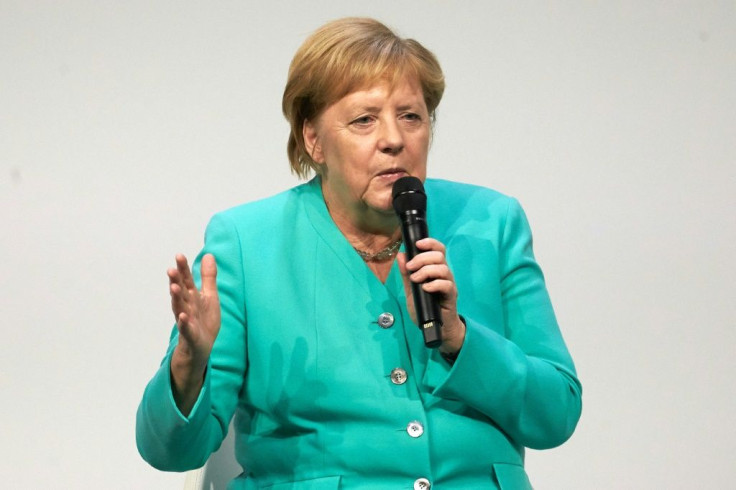Merkel Says Don't 'Overstretch' ECB After Board Member Resigns

German Chancellor Angela Merkel said Thursday that European Central Bank and its monetary policy must not be "overstretched", after a board member resigned over new measures to support the eurozone economy.
"Our political task is of course to not overstretch monetary policy, but to make sure with reasonable reforms and a reasonable fiscal policy that the ECB is not overburdened," Merkel told a conference in financial capital Frankfurt, home to the institution's towering headquarters.
"Monetary policy is a topic that stirs people up, that's seen differently in Portugal, Greece, Germany or the Netherlands," she added, less than 24 hours after German ECB board member Sabine Lautenschlaeger announced her resignation.
But Merkel refrained from directly commenting on policymakers' decision to lower interest rates and relaunch mass "quantitative easing" (QE) bond purchases earlier this month, widely criticised in German media and politics.
Like other "hawks" on the governing council, who eye critically departing ECB president Mario Draghi's easy-money policy, Lautenschlaeger believed the situation was not dire enough to justify restarting the bond-buying scheme.
Sources told AFP around 10 of the 25 members of the governing council opposed the new 20-billion-euro ($22 billion) per month purchase programme.
QE was first launched in 2015 to ward off an imminent threat of deflation -- a harmful downward spiral of prices and activity.
While such a danger is presently far off, trade conflicts and other threats are weighing on confidence, growth and inflation in the single currency bloc.
Nevertheless, critics say low rates and QE take the pressure off highly-indebted governments to reduce debt and deficits.
Many central bankers and economists have acknowledged the fears around loose monetary policy, but say it is up to governments and the EU to lift demand before they can turn the screws.
"There was unanimous consensus, unanimity... that fiscal policy should become the main instrument" to stoke demand, Draghi told reporters after this month's meeting.
Merkel's coalition government budget clung to a widely-criticised no-new-debt policy in its 2020 budget presented earlier this month.
But Finance Minister Olaf Scholz dubbed it "expansionary" and highlighted 40 billion euros in investments per year.
Christine Lagarde, the former IMF chief who will take the reins at the ECB from November 1, has said she plans to persist with Draghi's policy.
© Copyright AFP {{Year}}. All rights reserved.





















